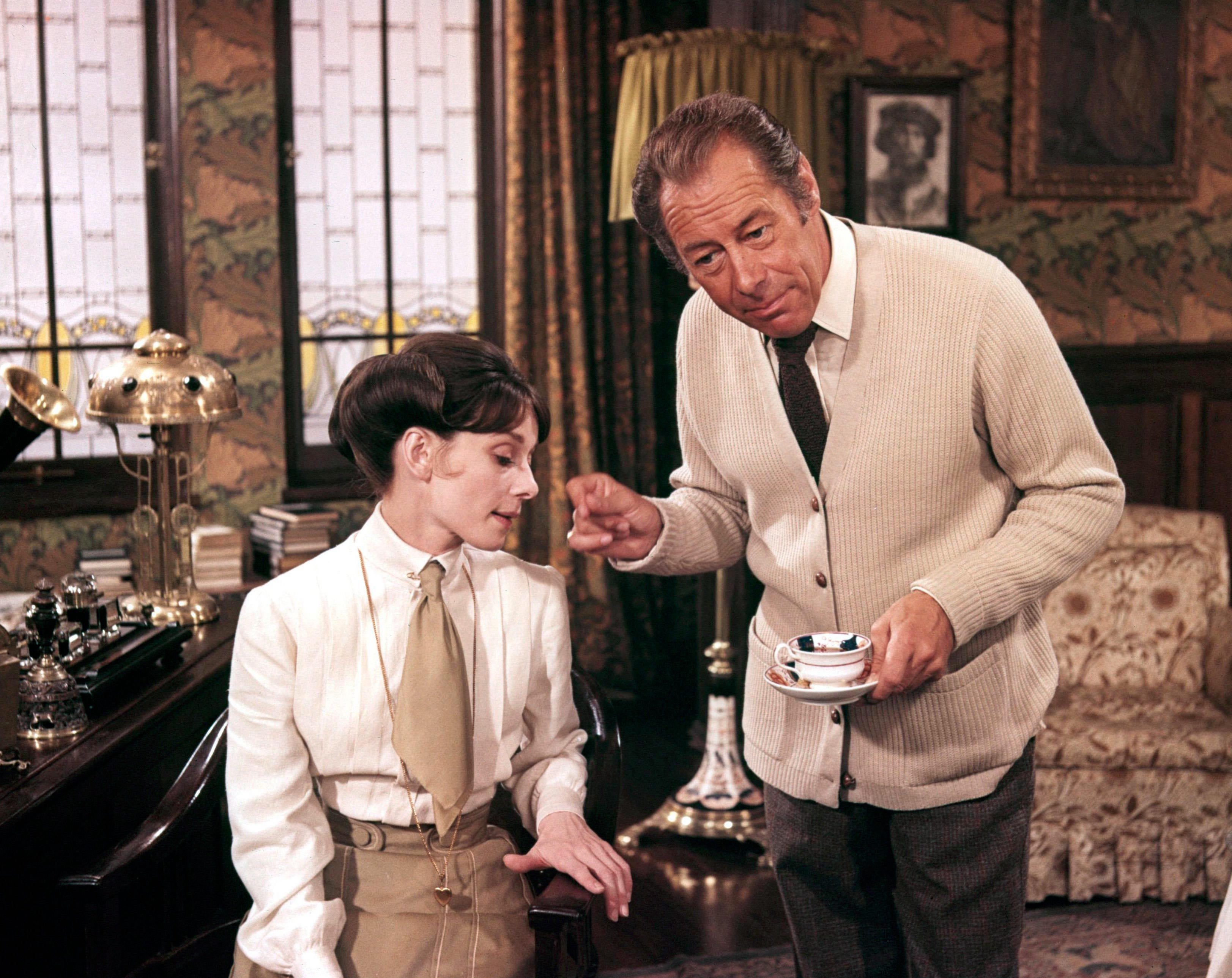When a survey of 10,000 teachers revealed this month that Britain’s primary school pupils are increasingly relying on Americanisms (the Times front page declared ‘Trash-talking children are sounding like Americans’) I realised immediately what we needed. Rex Harrison. And if not Rex Harrison himself, then a dose of arguably his greatest role – that of Henry Higgins, the cantankerous professor of phonetics who first burst into the national consciousness in 1914 with the London premiere of Pygmalion.
Alas, more than 100 years on, the essential truths in George Bernard Shaw’s now near unperformable play about the dire social harm caused by entrenched illiteracy and its consequences on speech (upon which, of course, Harrison’s role in My Fair Lady was based) remain as relevant as ever. In his preface to the play, Shaw wrote: ‘The English have no respect for their language, and will not teach their children to speak it.’
And we still don’t – not really. Which means that in the age of the streamers and the cultural free-for-all of YouTube, British English is an endangered species like never before. It is following in the limping footsteps of the red squirrel – still just about clinging on in the face of the stronger grey. Because it’s not just our children who are sounding more American, with teachers reporting them swapping ‘rubbish’ for ‘garbage’ and ‘sweets’ for ‘candy’. The tsunami of Americanisms weighing on us from the likes of Netflix, Amazon and Disney – not to mention ‘domestic’ broadcasters – is having an impact on adults, too. How many times a day do you now hear people say ‘Can I get?’, ‘100 per cent!’, ‘I’m good’ and countless other American idioms and fragments that have colonised our language and thought?
Yet instead of throwing in the towel, I think we can put up a fight. We can and should man the barricades and attempt to preserve our own version of the mother tongue, and be prepared to go down fighting, one contested consonant and glottal stop at a time. And Professor Henry Higgins can help. Consider it an intervention. But instead of rescuing – say – a loved one from the exploitative emotional hold of a charismatic religious sect, it would be an intervention to save our language.
So here is a radical national action plan for Britain. Imagine if every single teenager and young adult in the land – let’s say everyone under 30 just to be on the safe side – was obliged to attend state-funded regional theatres to see The Importance of Being Earnest (with or without Stephen Fry working double shifts), followed by Pygmalion: the former chosen for its sheer quality of wit and wordplay, the latter for its example. Taken together it would be a primer on English, arguably, at its apogee.
Consider the impact of those assembled vowels and consonants, those sentences and sentiments. Just imagine how devastating they would be on a modern audience, one previously unencumbered by any experience of them and accustomed only to the guttural Morlockian urgings prevalent on YouTube, TikTok or Instagram. Just imagine what an awe-inspiring, life-changing double bill that would be. You could soon find yourself strolling along the litter-strewn streets of Hounslow and overhearing a pair of youths chuckling ‘A handbag!’ from beneath their hoods as they wheelie by.
It’s about saving British English in all its idiosyncratic glories: its peculiar, abundant nouns and idioms, its chimes and rhythms, its cornucopia of pronunciations and medieval byways
If it was decided that we were being a little too old hat, we could go modern and introduce some Coward or Rattigan. Perhaps even some Osborne. Now imagine that we insist on weekly treatments until the individuals start to speak something resembling the King’s English – or at least to do so with the appropriate cadence? (No rising inflections here, please.) Once progress has been spotted this could be topped up with revision episodes of Minder or Jeeves and Wooster and vintage Emmerdale. After all, we must prevent regression.
Crucially, the intention would not be to make everyone speak in Received Pronunciation – though familiarity with its existence would surely be no bad thing. Rather, it’s about saving British English in all its idiosyncratic glories: its peculiar, abundant nouns and idioms, its chimes and rhythms, its cornucopia of pronunciations and medieval byways. It’s about protecting this cultural biodiversity from the banal homogenising diminution of globalisation as evinced by what we might call Netflix or Domino’s English, the verbal equivalent of eating with your fingers.
At the very least it would surely be good to increase the awareness of our own cultural hinterland more widely among the citizenry of this country and to make what is elite more freely available, even if people resented it at first, as they would. Maybe, then, this is an area where we need to take a leaf out of the French playbook. To be a bit militant, before it’s too late.
To make it fair perhaps all 67 million of us should be compelled to sit through at least one performance of Pygmalion a year. Or perhaps we could be forced to watch the 1938 Anthony Asquith film version with Leslie Howard at cinemas across the country. This could be paired in a double bill with, say, Educating Rita, in which Michael Caine and Julie Walters help inspire the wider public with the power of words and self-improvement. That might have more currency, what with it being in colour and – well, that was the butler from the Batman films.
As well as preserving facets of British English from internationalised annihilation there is a wider, equally vital point. Done right, the programme would expose people to the idea that if you want to succeed in life, then being readily understood is highly desirable, and that a cornerstone of achieving this is being able to communicate in a verbally grammatical fashion, one which possesses actual sentences that make actual sense.
It’s about the realisation that illiteracy of speech belies illiteracy of thought, and without straight-thinking citizens democracies are doomed because words become the handmaidens of demagogues. After all, if you can’t string words together to form a sentence, how on earth can you string thoughts together to form an idea, let alone hold a rational ideology or argument? You just boo in a bovine fashion or burp ‘100 per cent’ in response to some proffered assertion, rather than correctly interrogating it and its logical consequences.
‘You see the difficulty,’ declares Higgins in Act II of Pygmalion. ‘What difficulty?’ asks Pickering. ‘To get her to talk grammar,’ replies Higgins. ‘The mere pronunciation is easy enough.’








Comments